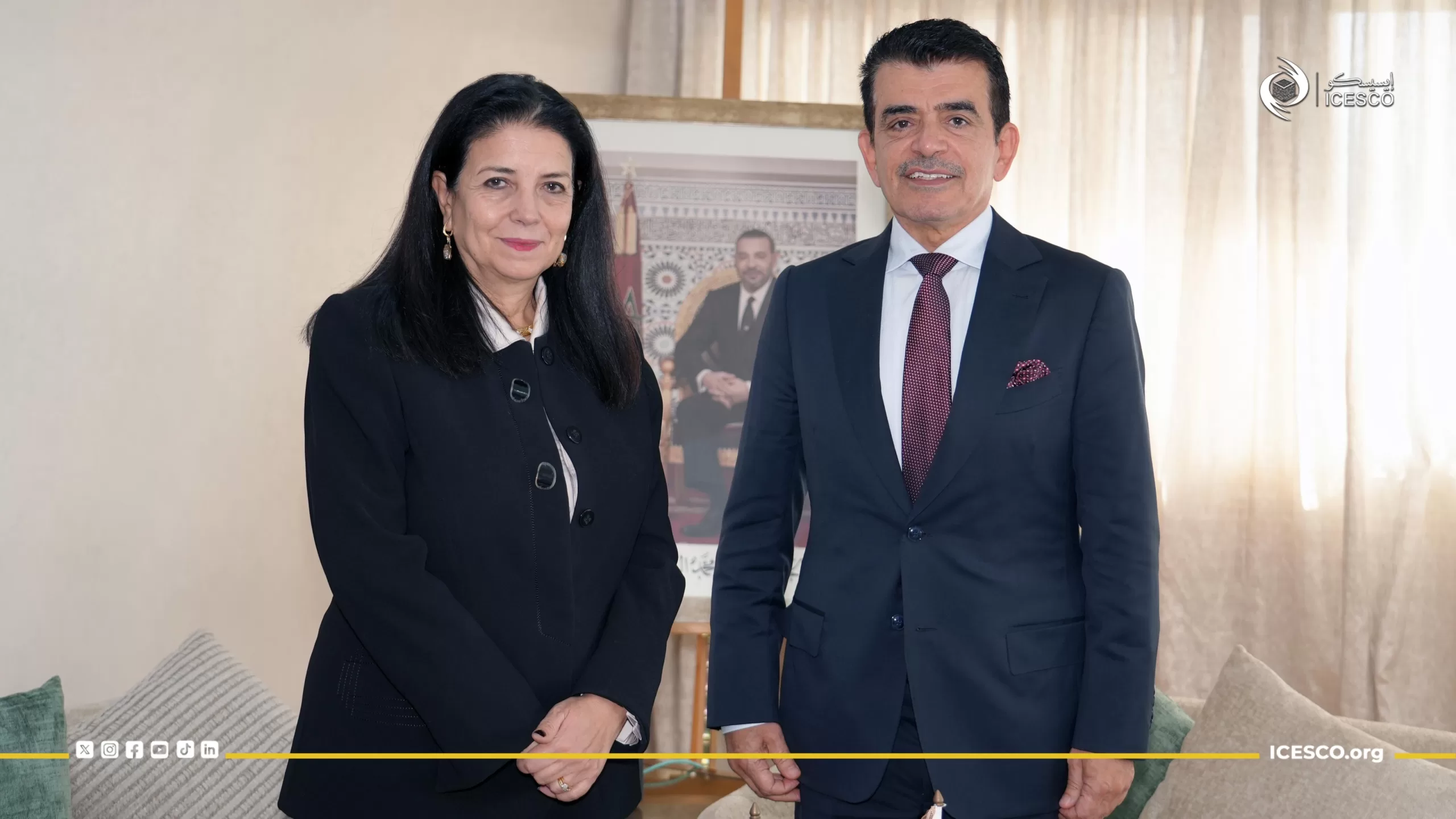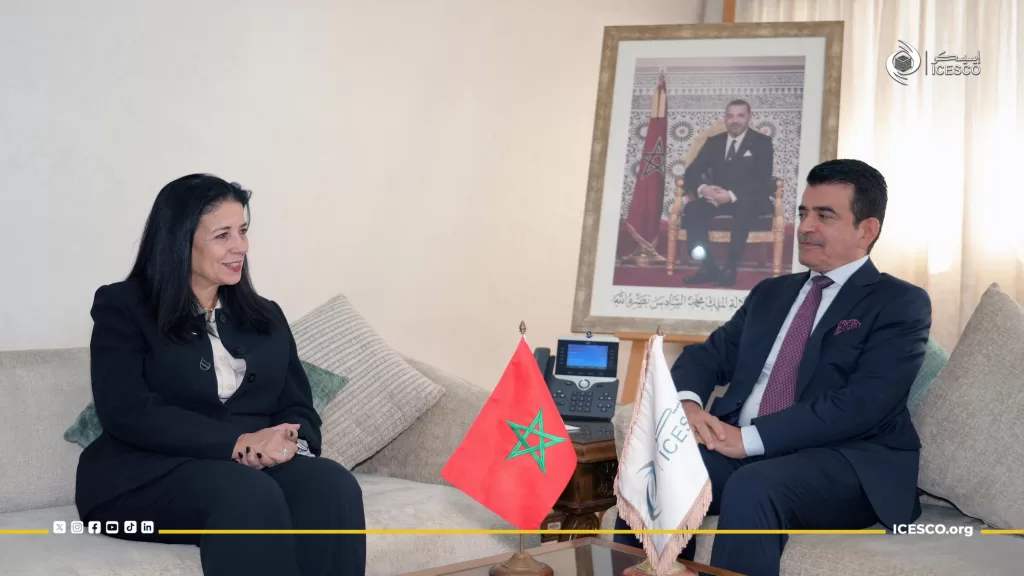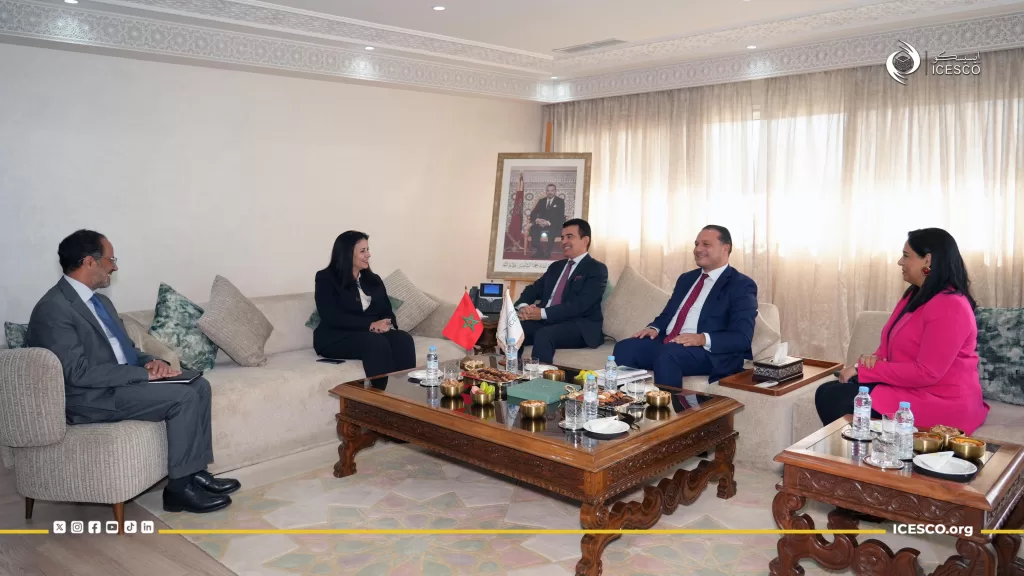
ICESCO, Morocco’s Ministry of Digital Transition Discuss Innovation and Ethical Use of AI

11 November 2025
Dr. Salim M. AlMalik, Director-General of the Islamic World Educational, Scientific and Cultural Organization (ICESCO), met with Ms. Amal El Fallah Seghrouchni, Minister Delegate to the Head of Government in charge of Digital Transition and Administrative Reform in the Kingdom of Morocco, to explore avenues for strengthening cooperation in digital governance, innovation, and artificial intelligence. The meeting took place on Monday, 10 November 2025, at the Ministry’s headquarters in Rabat.

During the meeting, Dr. AlMalik commended Morocco’s leadership and forward-looking vision in digital transformation and artificial intelligence, describing it as a regional model in technological advancement and good governance. He noted that Morocco’s progress aligns with ICESCO’s strategic direction, which places innovation and foresight at the heart of development policies in Member States. He also reaffirmed the Organization’s readiness to closely collaborate with the Ministry in training, building innovation ecosystems, and digitizing public services.
For her part, Ms. Seghrouchni highlighted the Ministry’s central role in administrative reform and leading Morocco’s digital transition. She emphasized that the digital economy is a driver of sustainable growth and a catalyst for modernization. She also pointed to the Ministry’s establishment of a legislative framework to enable innovation and support national and African digital ecosystems, aiming to position Morocco as a regional hub for artificial intelligence.

During the meeting, Dr. Kaïs Hammami, Head of the Center for Foresight and Artificial Intelligence, presented the Organization’s initiatives in the field, including the “Riyadh Charter on Artificial Intelligence for the Islamic World,” the “Université des Nouveaux Savoirs” project to empower youth through future-oriented learning, and training programs in artificial intelligence and digital applications to build Member States’ capacities.
The meeting concluded with an agreement to develop joint programs focused on training, capacity building, and responsible adoption of emerging technologies in support of sustainable development and social justice, particularly in Africa. Both parties committed to enhancing bilateral cooperation to advance innovation and the ethical use of artificial intelligence across ICESCO Member States.




